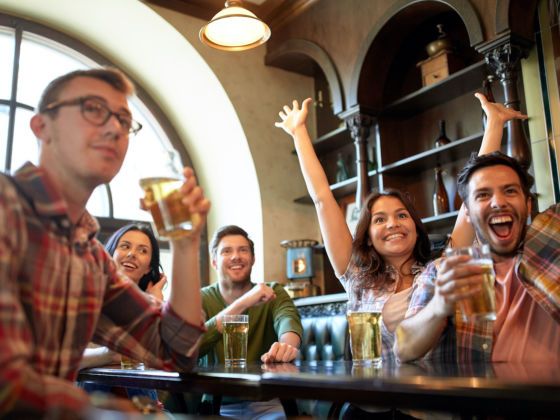If you’ve ever tried to round up a crew for a bar trivia night, you’ve heard the excuse: “It’s not for me. I suck at trivia.” Well, to anyone who’s ever uttered those words before, here’s a news flash: Everyone sucks at trivia. Unless you’re a college professor in multiple disciplines or a real-life Sheldon Cooper, your stockpile of knowledge probably leaves something to be desired. And that’s okay. Trivia isn’t about how much you know, or even about winning. It’s about showing up. It’s about finding a unique way to experience a city, meeting new people, and drinking so much that you forget to play the final round.
Even though the only thing at stake is a $25 gift card, bar crowds get more fired up about trivia than about many sporting events, making it one of the best ways to immerse yourself in a community. And if you pay attention, you might even learn a few things. After all, what else are you doing on a Tuesday night?
